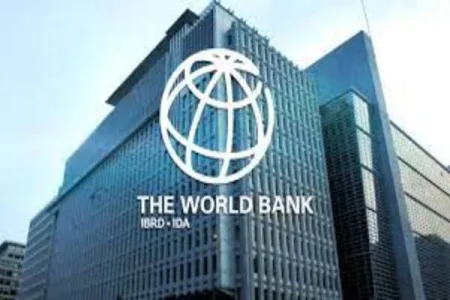
The World Bank projects Nigeria's economy to grow by 3.6% annually in 2025-2026, driven by federal reforms like subsidy removal and exchange rate unification. The services sector and increasing oil production will play key roles, while inflation is expected to ease, enhancing consumption and fostering overall economic stability.
The World Bank has projected Nigeria's economy to grow at an average of 3.6% between 2025 and 2026, driven by federal reforms and rising oil production. According to its January 2025 Global Economic Prospects report, recent policy changes, including the removal of fuel subsidies and exchange rate unification, have boosted business confidence and narrowed fiscal deficits.
GDP growth in 2024 reached 3.3%, largely fueled by financial and telecommunications services. Inflation is expected to decline, supporting consumption and growth in the services sector. Despite challenges, Nigeria's oil production is set to increase, though it may remain under the OPEC quota.
The report indicates broader optimism for Sub-Saharan Africa, with regional growth forecasted at 4.1% in 2025 and 4.3% in 2026. However, per capita income growth in Nigeria is expected to remain subdued.




